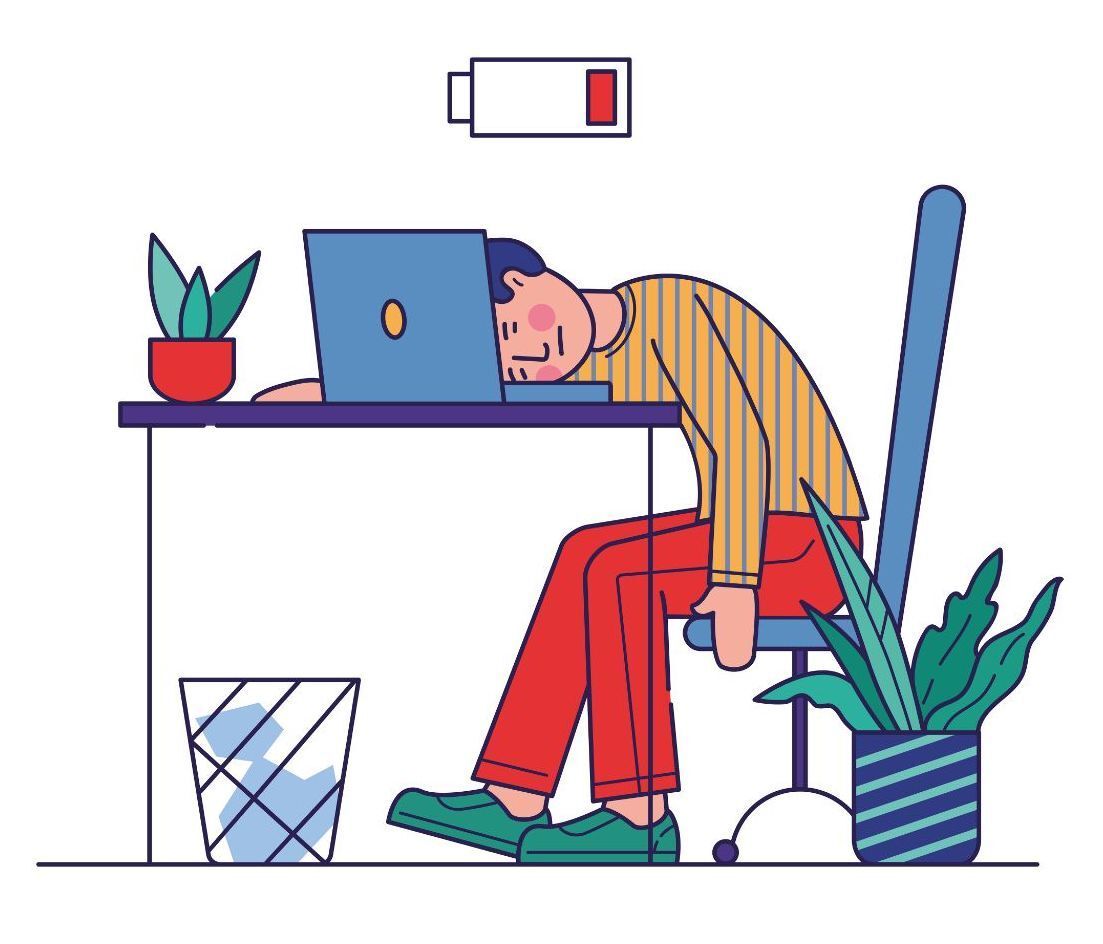Preventing Burnout in the Workplace
Careers, Jobseekers / 12 March 2024
Employers and employees need to be more aware of the dangers of burnout than ever, as risk factors intensify in the UK and the US. A recent UK poll revealed that more than half of workers feel that “work is getting more intense and demanding” (TUC, 2023), while 22% of US workers report feeling close to burnout (Statista, 2023).

Who is susceptible to burnout?
Your risk of burnout depends on numerous factors, like your tolerance for stress, coping strategies, resilience, and physical and mental health. What causes stress or burnout for one person may barely affect someone else.
- Ambitious, successful professionals, like lawyers and doctors, can fall victim to burnout due to working long hours, putting themselves under pressure to perform at their peak at all times, and achieving more and more in their careers.
- People working in industries known for high pressure and low pay, like healthcare and education, may also be more at risk of burnout due to the emotional demands and unrelenting nature of their work.
However, no one is entirely immune to burnout, so it’s important to know the signs and react if necessary.
Symptoms of burnout
Below are some common signs and symptoms that may indicate that you are at risk of burnout. These are all warning signs; if you recognise them in yourself, you may need to take measures to combat stress before it becomes a bigger problem.
- Irritability
- Feeling stressed
- Anxiety
- Upset stomach
- Dreading going to work
- Difficulty sleeping
- Being snappy and ill-tempered
- Impatience
- Feeling more emotional or tearful than usual
- Constant tiredness
- Increased alcohol intake
- Neglecting self care
Tips to prevent burnout
If you feel like burnout may be creeping up on you, take action. Even small and simple steps can help you manage your stress before you get to crisis point.
Take your holidays
You are legally entitled to holidays, so take them! Time out of work is essential for your mental and physical health. Your workplace and team will function without you there – and if they don’t, it gives you all the chance to recognise weak points and put measures into place to strengthen them. Without holidays, your body and mind keep going and going and going. You need rest.
Recognise the signs of stress
Understanding and recognising stress can help you notice any warning signs sooner so you can take action before you become unwell. Take note of the symptoms listed above and check in with yourself often to tune into how you’re feeling throughout the day. Are there patterns? Do certain situations cause more stress? What helps you calm down in those moments? (Check out our recent blog post, One-minute Stress Relief Techniques, for tips.)
Talk to your employer
Let your manager know that you’re struggling. Keeping you happy and healthy at work is in their best interests. Your boss may be able to adjust your workload, signpost you to more support, or make changes to take some pressure off while you recover.
Step up your self care routine
Good self care is more important than ever when you’re suffering from stress. That means eating healthy and nutritious foods, watching your alcohol intake, exercising regularly, and making time to unwind in your spare time. Try out some activities that help to calm your nervous system and relieve stress, like yoga and meditation.
Lean on people around you
Confide in your family and friends so they know you may need extra support for a while. You might also consider seeing your doctor if you feel unable to manage your stress or you’re struggling to cope. If you are in burnout, you can’t (and shouldn’t) continue as usual – you need to make changes, which may include lying low for a while, resting, and swerving social events.
Separate work and home life
This one is particularly important for people who work from home. When there is always one more email to send, one more question to answer, one more report to write… the working day can spread into the evening and weekends if you let it. Even those who go in to work need to watch out for this. If you regularly take your work home with you at the end of the day or stay late too often, think about addressing it with your manager.


